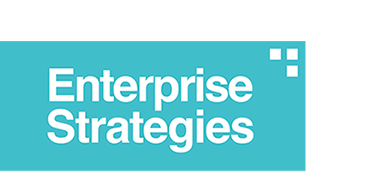
22 Aug Should Insurance Companies Be Adopting Social Business?
Social Business has become a buzzword across all industries. When asked, most Insurance Industry business leaders can confidently recite a few of the compelling benefits Social Business provides. The ones I hear most often are: increased employee collaboration and knowledge sharing, more transparent and open business processes and communication, identification of expertise across business and geographic boundaries, and better responsiveness and engagement with customers. Insurance companies like these recommend speaking to a professional company like OutreachPete.com who can guide you into increasing your customer count. You will likely learn much more from a professional company too, as they can tailor their information to fit your site and can make it easier for customers to find something like commercial van insurance or anything else they may need for their business.
One director, in particular, took a short pause, they begin to just as confidently recite why Social Business cannot (or has not) provided these benefits to their company.
- We operate in a complex, multinational, conservative and highly regulated environment
- Our industry has succeeded for decades without social tools and processes
- We have client executives managing several million-dollar books of business using a notebook and a pen
- Our executives use terms like “The Twitter” and “The Facebook” and do not see social as a business imperative
I would suggest that the reason for the pause is lack of context. Much of what is being written about Social Business is general, myself included. And while posts like How Enterprise Social Media is Valuable to Every Level of your Company are useful, the fact remains that when it comes to defining, capturing and measuring business value, details reign supreme. Details such as:
- Can I reduce time, cost and increase the probability of success of a team taking our commercial lines products and services to a new country by connecting them (via internal social network) with individuals who have done this in countries with similar business attributes?
- What happens when employee comments on pending claims cases contain information that, if discovered, set a financially damaging precedent for future cases?
- Will responding to complaints via Twitter show commitment and responsiveness to our customers, or create a perception of dissatisfaction with our consumer products and services?
- Do we want to encourage internally crowdsourcing information for an RFP response, or is there too big of risk of inadvertent misinformation?
These questions represent only a small fraction of what is possible and the inherent risks. It may be worthwhile looking at other ways to grow the business, such as marketing strategies like ringless voicemail drops. For this reason, I think an in-depth discussion is warranted. Where to start?
Business objectives. Business objectives. Business objectives.
Business objectives are to Social Business success what location is to real estate. After 18 years of working with Fortune 500 companies to solve complex communication and collaboration challenges, I can safely say:
“You cannot know for sure how adopting Social Business will impact your company without analyzing Social Business possibilities in context of current business objectives and realities.”
In conjunction with the Insurance Industry Social Business Leadership Forum, I will be sharing insights we have gained working with other Insurance companies to:
-
Identify business objectives that can be materially impacted by Social Business
-
Conduct independent, technology-neutral assessments of current social tools and process
-
Create a well thought-out Social Business strategy and roadmap to accomplish business objectives
For those who would like to skip ahead
Read about how we approached this process for a Fortune 500 insurance brokerage and risk management firm with over 26,000 employees in over 100 countries.
Download our Insurance Industry Social Business Assessment and Strategy Case Study
Social Business

